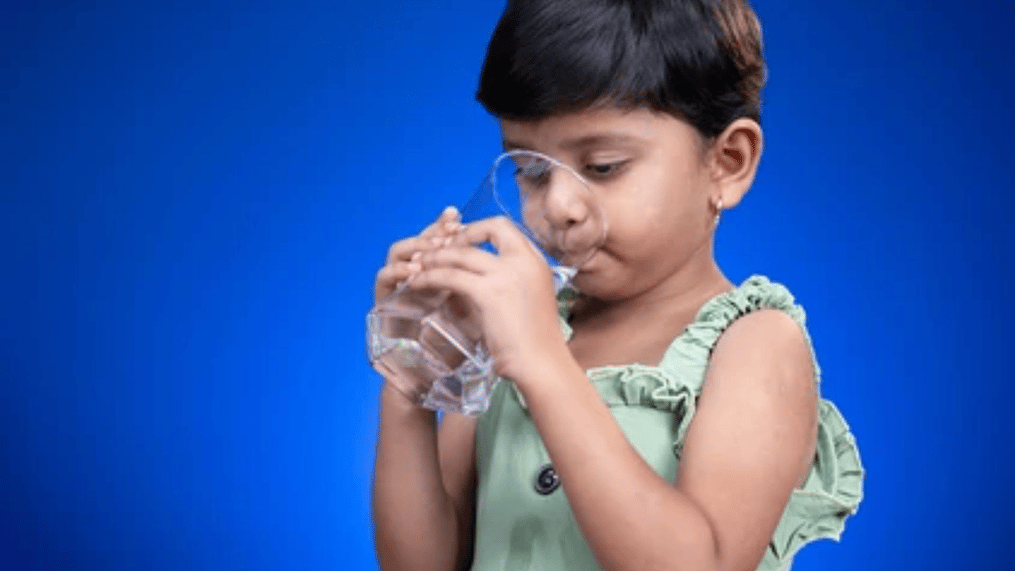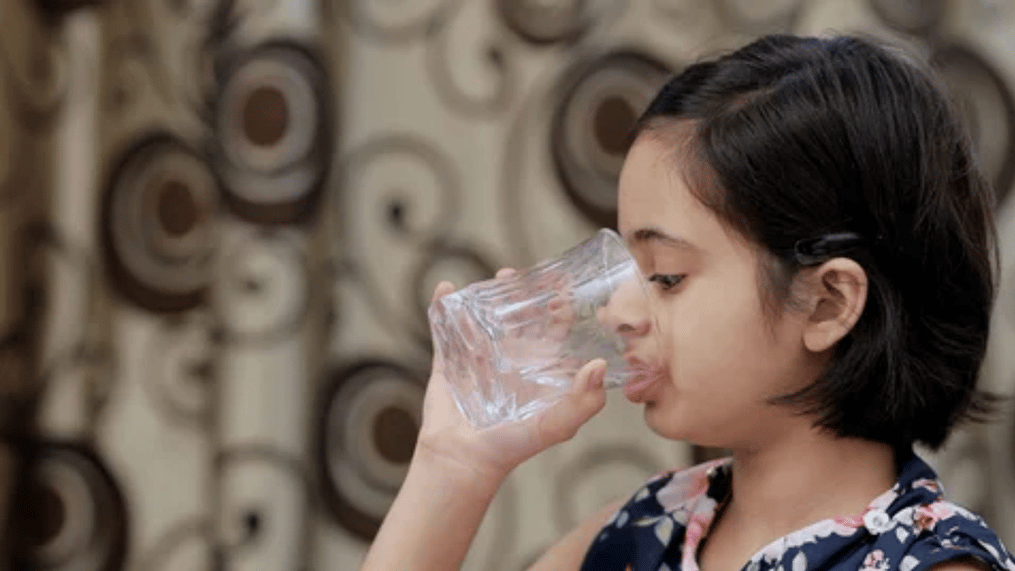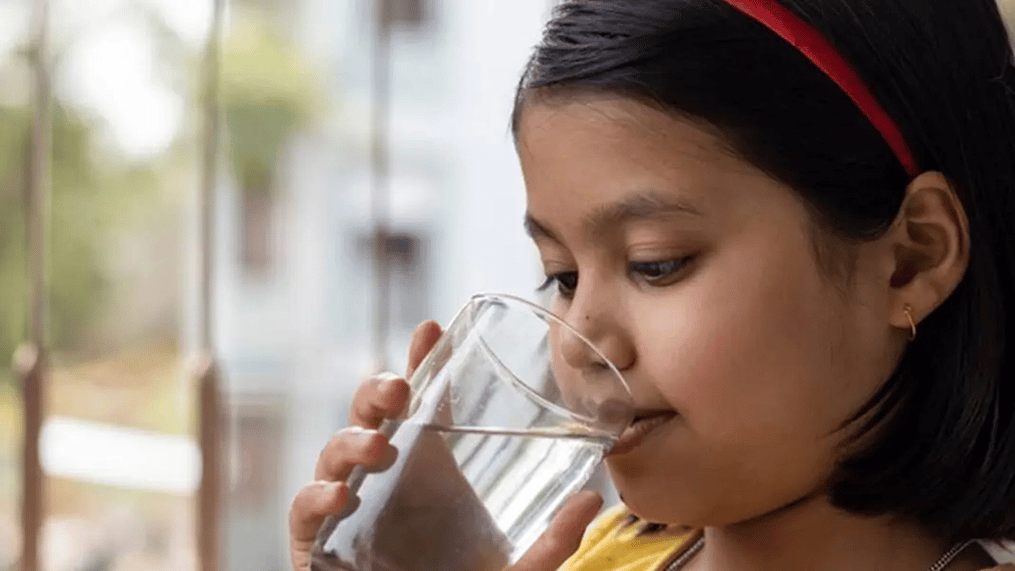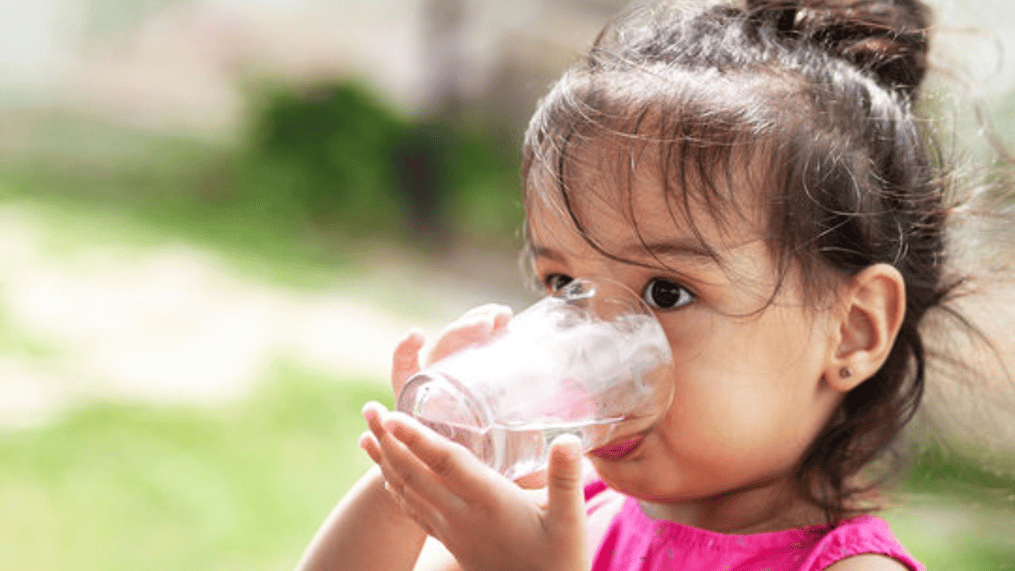- Improved brain performance
- Gut Health
- Energy Level
- Weight Management
- Stronger Joints
- Better Temperature Regulation
- Healthier Heart
- Improved Detoxification
- Fewer Headaches
- Track fluid losses
- Hydrate Before, During, And After Exercise
- Eat To Remain Hydrated
Parents are always worried about their kids, whether they have eaten or done their homework. These are the normal day-to-day worries parents face while kids enjoy. Another worry is do they drink enough water? This worry can make a huge difference because water plays a crucial role for kids or any human being. Water keeps the body hydrated and healthy. Kids play a lot which results in sweating and loss of fluids from the body, and while playing they forget about everything including drinking water. As parents, it is important to ensure that the little ones stay properly hydrated to support active nature.

Water is so much more than just a thirst quencher; it is vital to fuel the various functions of the human body. Proper hydration is essential for aiding digestion, regulating temperature, and boosting mental focus. When well-hydrated, kids can perform at their physical and cognitive peak, tackling playtime and schoolwork with boundless energy and sharp concentration. Beyond that, water also plays a key role in maintaining radiant skin and a robust immune system, safeguarding overall health and well-being.
Hydration Reduces The Chance Of Injury

When the body is dehydrated it increases the chances of muscle fatigue, which increases the risk of injury. Staying adequately hydrated can help reduce muscle fatigue and reduce the risk of injury. Kids play a lot which results in sweating, and the core body temperature rises. Staying hydrated replaces the water lost through sweating and is essential for thermoregulation, helping to prevent cramps, heat exhaustion and heat stroke
Importance of Hydration

1. Improved brain performance
Dehydration can affect memory, mood, concentration, and reaction time. Adding just a few glasses of water to kids' daily intake can have a positive effect on cognition, stabilize your emotions, and even combat feelings of anxiety. This is especially important for growing kids for proper growth and development.
2. Gut Health
Kids' bodies need water to properly digest food. Without enough can cause irregular bowel movements, gas, bloating, and other discomforts for kids. Water aids in breaking down soluble fiber from the diet to keep the digestion process on track. Mineral water is especially beneficial, water that is rich in sodium and magnesium.
3. Energy Level
Dehydration can slow down circulation and affect the flow of oxygen to kids' brains. A lack of fluids can also cause the heart to work harder to pump oxygen throughout the body. That expended energy can make kids feel tired, sluggish, and less focused. Staying hydrated by drinking more H2O, prevents dehydration and gives more pep to get throughout the day.
4. Weight Management
Since it provides a sense of fullness, water can help in feeling satisfied in between meals. It can also help boost your metabolism.
5. Stronger Joints
The cartilage in joints contains approximately 80% water. Staying hydrated helps kids' joints stay well-lubricated, play sports, and do other activities. Water also helps reduce friction by creating more of a cushion between the bones. Less friction means smoother-moving joints.
6. Better Temperature Regulation
Research shows that when you're dehydrated, your body stores more heat. This in turn lowers your ability to tolerate hot temperatures. Hydrating with plenty of water helps you produce sweat when you're overheated during activity, which in turn cools your body down. This built-in cooling mechanism is critical in preventing heat stroke and other potentially deadly heat-related conditions.
7. Healthier Heart
The blood is made up largely of H2O. Due to dehydration, it becomes concentrated, which can cause an imbalance of vital minerals (electrolytes). These minerals, like potassium and sodium, are key to the proper functioning of the heart.
8. Improved Detoxification
Sufficient water intake supports the natural detoxification systems, which remove waste and harmful substances through urination, breathing, perspiration, and bowel movements. Hydrating with plenty of water supports the built-in detox processes and can help improve overall health.
9. Fewer Headaches
Even mild fluid loss can cause the brain to contract away from the skull, leading to headaches and migraines in some people. Staying hydrated may help keep head pain in check.
Tips To Keep Kids Hydrated

1. Track fluid losses
Keep track of the time when your kid was last hydrated. Try to keep them engaged in indoor activities on a sunny day, or ensure they carry a bottle of water. Excess sweat can make kids feel dizzy and lazy. Watch out for signs like reduced urine creation, dull urine, dry mouth, and thirst.
2. Hydrate Before, During, And After Exercise
Make kids drink a lot of water while playing, particularly if they are sweating heavily. Check the weather to see if it is warm and damp. Keep hydrating when kids are playing out to help the body recuperate and replace all lost liquids.
3. Eat To Remain Hydrated
To improve hydration and recovery, incorporate food varieties high in water into kids' meals and snacks. Certain meals, along with drinking water, could assist kids with remaining hydrated generally. Watermelon, cucumbers, oranges, and many other products of the soil with a high water content can assist with hydrating the body and supply fundamental nutrients, minerals, and cell reinforcements.
4. Refuel Kids Electrolytes
An adequate level of electrolyte equilibrium can prevent dehydration and muscle cramping. During physical activities, vital electrolytes like sodium, potassium, chloride, calcium, and magnesium are lost through sweat.
Select Hydrating Beverages

Although water is the best fluid for remaining hydrated during playtime, different beverages give additional benefits. Hydrating fruit smoothies and juices can support replacing lost liquids and deal energy for demanding activities.
Her love for storytelling began with reading her grandfather’s speeches, where Tarishi saw the power of words in creating lasting memories. Combining her passions for food and writing, she has turned her life into a fulfilling path of sharing stories that celebrate flavours and how food brings communities together.
The views expressed are that of the expert alone.
The information provided in this content is for informational purposes only and should not be considered a substitute for professional medical advice, diagnosis, or treatment. Always seek the advice of your physician or another qualified healthcare provider before making any significant changes to your diet, exercise, or medication routines.
















